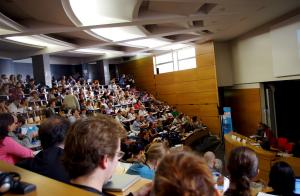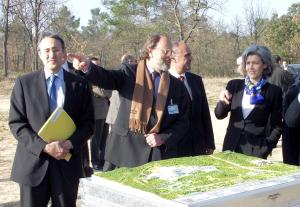With 650 participants from 57 countries meeting last week in Nancy (France) for a conference on science communication, there is no doubt that this field of activity is rapidly expanding. Some argue that science communication has even become a new academic discipline with its own peer-reviewed journals, hundreds of PhD students, and dedicated events. For sure, it is a growing professional sector as most research organizations have established a public relations or press office.
Personally speaking, I don't believe science communication is (yet) a scientific discipline. I haven't seen any model able to predict or even describe the current situation and results. There are many prejudices and misconceptions circulating in this area, even within the scientific community. For example, communication specialists
Matthew C. Nisbet and Dietram A. Scheufele have shown that much of what researchers believe about public and effective communication is wrong (
The Scientist, 23 July 2012).
In my public lecture, I insisted on the concept of "mediascience," which is science as it appears in the media and which is therefore the public face of science. Mediascience is very different from science itself, nevertheless—although often criticized by the scientists—it is useful in that it allows scientific research to be contextualized and to reach the political sphere. I also identified three "ages" of science communication: information, communication (dialogue) and public participation in decisions about science and technology. In my opinion, we are still, to a large extent, in the first age.
The discussions in Nancy confirmed that science communication is also experiencing many profound changes due, among other factors, to the development of electronic communication and social networks. Expectations are still very high, which explains why all countries have undertaken, with some success, activities in science communication to promote public engagement on collective challenges.
However, there are major concerns about these activities as they are not often valued and recognized at the political level, or in the evaluation of scientific careers. Also, some recent scientific advances have not attracted the attention of the media and the public. Citizens feel « left aside » because they believe that scientific research and its applications are discussed and decided without involving them. Scientists, on the other hand, have the impression that they are increasingly ignored.



